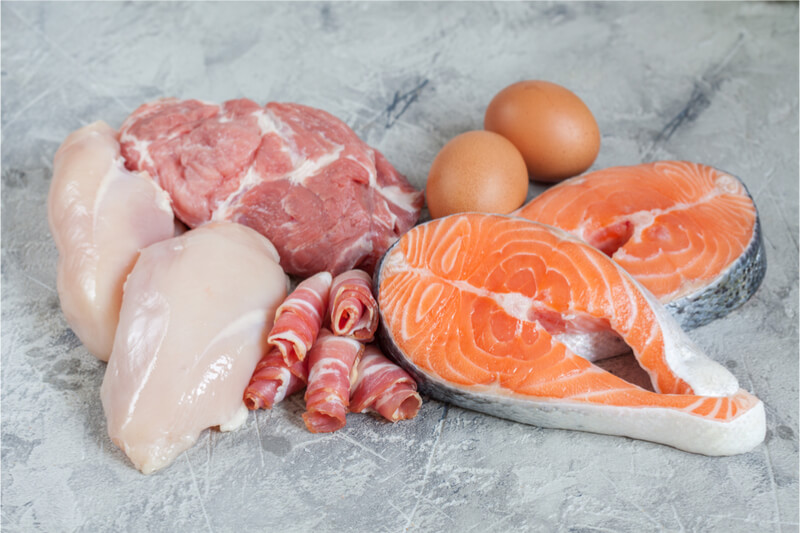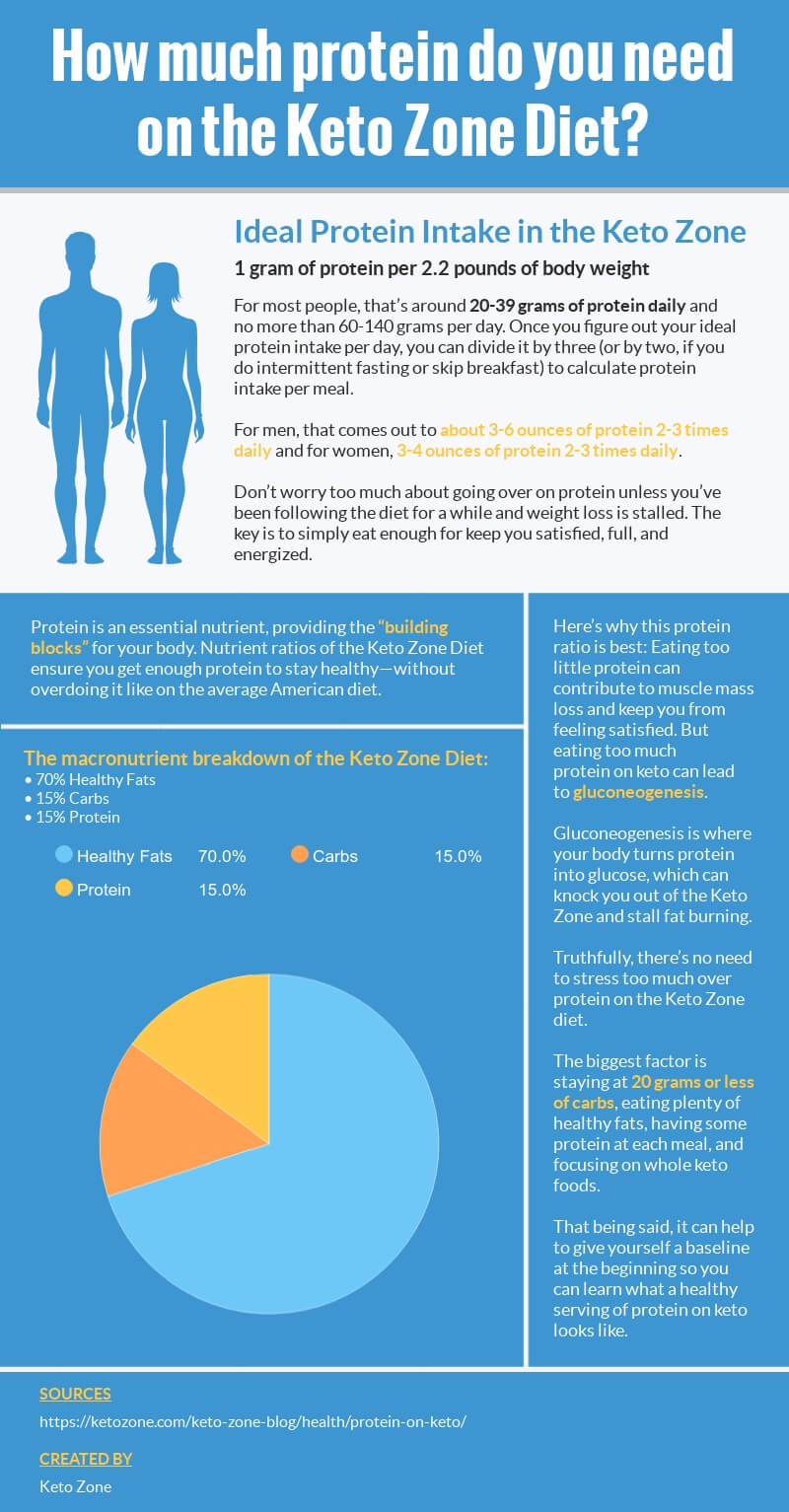Protein on the Keto Zone Diet: How to Know if You’re Getting Enough
On the keto diet, fat is king. It makes up the largest portion of the diet and—along with keeping your carbs low—is what helps keep you in a state of ketosis. But there’s another macronutrient that you might wonder about, and that’s protein on the Keto Zone Diet.
In this article, we’ll cover what you need to know about protein for the Keto Zone Diet along with some of the best sources.
How Much Protein Do You Need on the Keto Zone Diet?
Protein is an essential nutrient, providing the “building blocks” for your body. Nutrient ratios of the Keto Zone Diet ensure you get enough protein to stay healthy—without overdoing it like on the average American diet.
The macronutrient breakdown of the Keto Zone Diet is:
- 70% healthy fats
- 15% carbs
- 15% protein
Here’s why this protein ratio is best: Eating too little protein can contribute to muscle mass loss and keep you from feeling satisfied.
But eating too much protein on keto can lead to gluconeogenesis. Gluconeogenesis is where your body turns protein into glucose, which can knock you out of the Keto Zone and stall fat burning.
Truthfully, there’s no need to stress too much over protein on the Keto Zone diet. The biggest factor is staying at 20 grams or less of carbs, eating plenty of healthy fats, having some protein at each meal, and focusing on whole keto foods.
That being said, it can help to give yourself a baseline at the beginning so you can learn what a healthy serving of protein on keto looks like.
Ideal Protein Intake in the Keto Zone
The best formula for figuring your ideal protein on keto is this:
1 gram of protein per 2.2 pounds of body weight.
For most people, that’s around 20-39 grams of protein daily and no more than 60-140 grams per day. Once you figure out your ideal protein intake per day, you can divide it by three (or by two, if you do intermittent fasting or skip breakfast) to calculate protein intake per meal.
For men, that comes out to about 3-6 ounces of protein 2-3 times daily and for women, 3-4 ounces of protein 2-3 times daily.
Don’t worry too much about going over on protein unless you’ve been following the diet for a while and weight loss is stalled. The key is to simply eat enough for keep you satisfied, full, and energized.
Best Sources of Protein on Keto
Most protein on keto should be high quality and whole foods-based. Here are some of the best keto protein sources:
- Organ meats
- Chicken thighs
- Beef steak
- Lamb chops
- Pork loin
- Venison steak
- Fatty fish and seafood like salmon, sardines, mackerel, cod, tuna, and sea bass
- Turkey
- Whole eggs
Dairy (for those not sensitive or allergic to dairy foods), and some low-carb nuts and seeds are also sources of protein you can include on your Keto Zone Diet.
Here are a few more tips for choosing protein on keto:
- In general, fattier cuts of meat will have slightly less protein, but they are also the best choice for a ketogenic diet since you want a higher proportion of fat. But try to choose grass-fed as much as possible with fatty meats.
- Steer clear of processed meats like salami, pepperoni, hot dogs, and sausage as much as possible—and have them no more than every 3-4 days.
- Consider what comes with the protein you choose. Does it have a lot of carbs like beans and lentils, or is it covered in a sugary sauce? If so, skip it.
Best Protein Powders for the Keto Zone
Can you use protein powders to supplement your protein needs on the Keto Zone Diet? Absolutely! They’re great in keto milkshakes, smoothies, and more. But just like with whole food protein sources, quality matters.
The number one protein supplement we recommend is Keto Zone Hydrolyzed Chicken Collagen. Not only is it a high-quality source of keto protein for nail, skin, nails, and joints, collagen helps keep skin toned and reduce sag as you lose weight. It’s great before bed to help with sleep and repair through the night or in keto coffee in the morning.
If you’re doing vegetarian or vegan keto, Fermented Green Supremefood is one of the best options.
Otherwise, choose a protein powder that:
- Has around 15-25 grams per serving depending on your body weight
- Is as low in carbs as possible
- Doesn’t have added artificial sweeteners, preservatives, processed milk powders, or soy
- And if the protein powder if whey, make sure it’s from grass-fed cows and low-temperature processed
Overall, making sure you get enough protein on keto shouldn’t be hard once you’re used to the diet. The most important factors are keeping your carbs at 20 grams and making sure you eat enough healthy fats with each meal. And when you do have protein, choose the highest quality option you can!
More Articles From Drcolbert.com Find Out More About Dr.Colbert’s Health Services


The first sentence recommends 20-39 grams of protein daily but I think it should say per meal. Also, should we add protein depending on how active we are?
Thank you for all the helpful info. I’ve been trying to live on a keto diet for a couple of months now with limited success. Some of the info you shared was not on any of the other sites. So, thank you!
Hi karis,
Thank You for your comment.